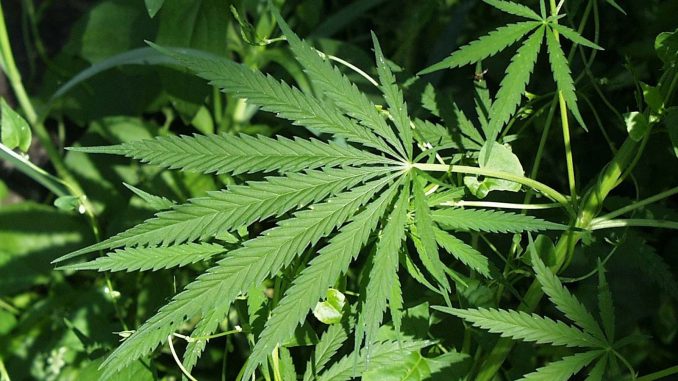
Ashley Hopkins, Staff Writer |
They don’t call us “Stoneonta” for nothing. Whether used recreationally, medicinally or both, most of us can say that we use or know someone who uses marijuana. We also have been told repeatedly about the negative effects marijuana can have on our health, but how true is that?
Dr. Kirk, a psychology professor at SUNY Oneonta and expert in adult development and aging, dove into his research findings in his study about the psychological effects of marijuana in a presentation on Thursday, Sept. 30. Kirk lived in Colorado for several years and conducted his study there until 2017.
Colorado became the first state to legalize the recreational use of marijuana in 2012. Nine years later, recreational marijuana use is legal in 18 states, with New York being one of the most recent states to hop on board. Kirk said that while law and public opinion have changed, there are still a lot of discrepancies in the scientific community. While cannabis is not a chemically addictive drug, many still say that you can get addicted to cannabis use. Kirk pointed out that people can get “addicted” to anything: food, relationships, TV– you get the picture. Besides this idea that cannabis is addictive, some claim that cannabis can negatively impact physical and mental health.
Kirk went into the study with four goals: to see how public perceptions of cannabis are shifting with ongoing legislative changes, how the legalization of cannabis may be influencing usage patterns, what contributing factors or underlying purposes are motivating different age groups to use cannabis, and what potential differences are present between users and non-users in relation to cognitive and affective outcomes. Kirk used a variety of tests such as the Vocab Subscale, which is the best predictor of overall IQ, and the most used test for IQ in the world.
Some of Kirk’s findings were expected, like how older adults had a more negative view of cannabis and the group who used cannabis the most recreationally was young adults. However, some of his findings were unexpected, like how middle-aged adults were the age group to use cannabis for both recreational and medicinal purposes the most.
We’ve all heard “pot fries your brain,” and sayings of the like, but Kirk actually found that there were no significant differences in cognitive abilities between users of cannabis and non-users on any of the cognitive assessments for vocabulary, processing speed, and numeric and mathematical ability. While cannabis may not be hurting your brain’s educational abilities, it may influence one’s negative affect (feeling negative emotions) and overall life satisfaction. Kirk found that there was a significant difference between users and non-users when it came to these two categories, with users of cannabis having a more negative affect and lower life satisfaction.
Kirk pointed out an unfortunate trend when conducting research: it is extremely difficult to get older participants. College professors are fortunate to have access to college students willing to participate for extra credit but getting people to participate in studies out of the kindness of their hearts is hard to come by. This leads to the overgeneralization of results, which can be common in scientific research. Therefore, Kirk made it his duty to try and get participants that varied in age in his study.
When asked what he would like to see the SUNY system adopt when it came to the recent legalization of recreational marijuana use, Kirk responded, “I would like to see overall — certainly here on this campus, but nationally– more research-informed laws. By that, I mean more liberal laws… At 21 you can buy tobacco, and there is a proverbial mountain of medical research showing the awful effects of nicotine and tobacco use, but you can still do that. I would say that there is nothing about cannabis use that is worse for you essentially than tobacco, yet you can buy that legally of age. That law has been so liberal for so long nationally speaking. Same thing goes for alcohol. It’s inconsistent, it’s arbitrary, and it’s silly when you actually examine the peer-reviewed science and medical research.” As of right now, the college’s current policies regarding cannabis use are as follows: “Possession, use, sale, and/or distribution of cannabis on campus grounds and in campus facilities is prohibited. Cannabis paraphernalia (pipes, bongs, dab rigs, wax tools, etc.) and items associated with the use, sale, and/or distribution of cannabis are prohibited. Being in the presence of cannabis on campus is prohibited. This includes, but is not limited to, attending gatherings where cannabis is present. An individual’s use of cannabis on or off campus which results in a disruption to the campus community or a risk to personal safety will be considered a violation of this policy.”
Leave a Reply